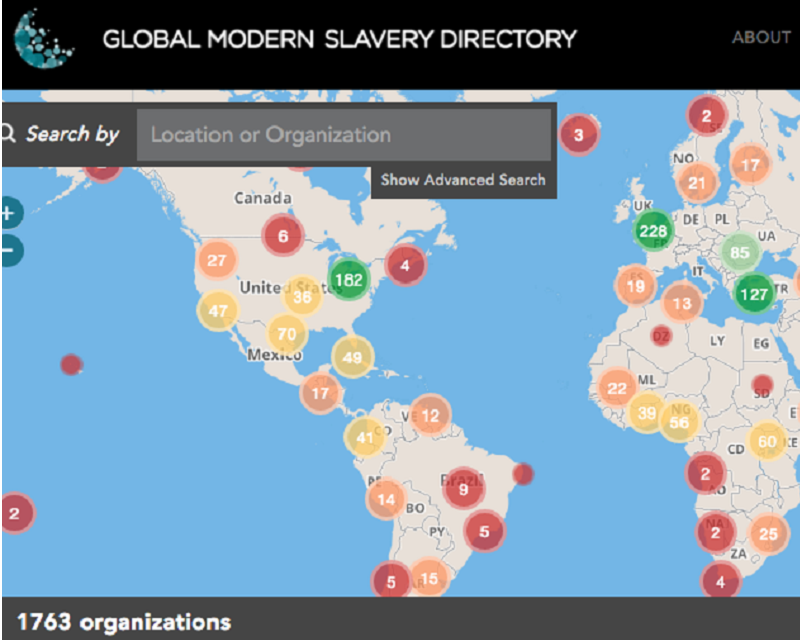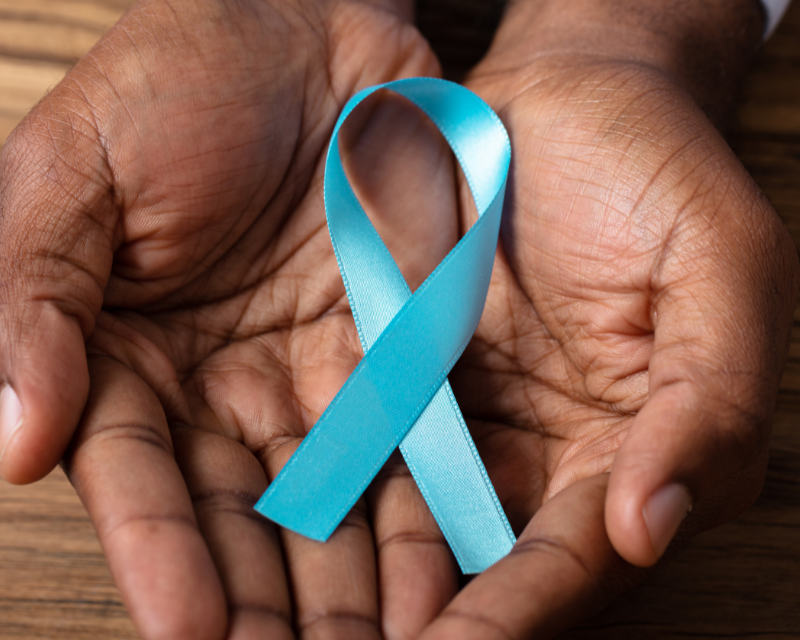
When someone contacts the National Human Trafficking Resource Center hotline (NHTRC)* or Polaris about a trafficking situation, we spring into action. Depending on what the potential victim needs and where they are located in the United States, call specialists have lists of service providers that can assist the individual and specific protocols for how to respond to various situations. But what happens if the situation of human trafficking is occurring in another country? Can Polaris still help? Now we can.
Connecting across borders
The NHTRC receives federal funding from the U.S. Department of Health and Human Services to serve potential victims, survivors, and anti-trafficking stakeholders within the United States. But as the hotline became more well-known, it began receiving reports of trafficking and requests for assistance from other countries. In response to these growing requests, in October 2014, Polaris and the Freedom Fund launched the Global Modern Slavery Directory, an online, public database that today contains over 1,700 organizations, spanning 174 countries, that work on the issues of human trafficking and forced labor.
While Polaris cannot respond to all international situations of trafficking, the organizations listed in the Global Modern Slavery Directory can help. When someone calls the hotline seeking assistance in another country, Polaris staff can now look up local referrals in that country or city, and search for the best service provider based on the caller’s needs.
In 2015, we responded to 252 human trafficking cases overseas. We’ve been especially pleased to receive confirmation that several of our callers who contacted us from outside the U.S. were able to get out of their trafficking situation and back home to safety after receiving referrals to local hotlines and organizations from the Directory.
Not just for victims
The Global Modern Slavery Directory isn’t just for victims of human trafficking — anyone looking to learn about the anti-trafficking field in any part of the world can use it. For example, individuals or service providers may be aware of local resources and organizations, but struggle to find resources that exist outside of their regional network, or outside of their home country. The Global Modern Slavery Directory allows for service providers in destination countries to locate services for a survivor in their origin country.
Hotlines in other countries can also use the Directory to find assistance for callers outside of their geographic purview. Volunteers or community members can use the Directory to learn about trafficking organizations in their home city, or in an entirely foreign region that they plan to visit.
You can use it, too
If you are a hotline or service provider that often works with survivors that are from other countries or who have been exploited in other parts of the world, use the Directory to identify partners or referrals. If you are a community member, researcher, or potential volunteer, use the Directory to identify anti-trafficking organizations near you, or in a region of interest.
If your organization provides services to victims of human trafficking or exploitation, we invite you to add yourself as a resource by visiting www.globalmodernslavery.org/apply so that other users can learn about your work.
While resources for victims of human trafficking are limited, help does exist in many parts of the world. Help us help those in need by sharing this blog post, using the Global Modern Slavery Directory, and encouraging anti-trafficking organizations from around the world to join.
*The NHTRC is now the U.S. National Human Trafficking Hotline.


